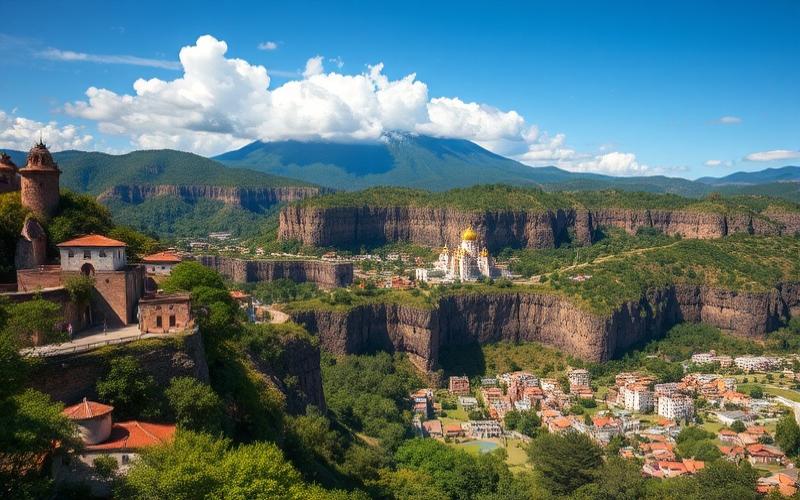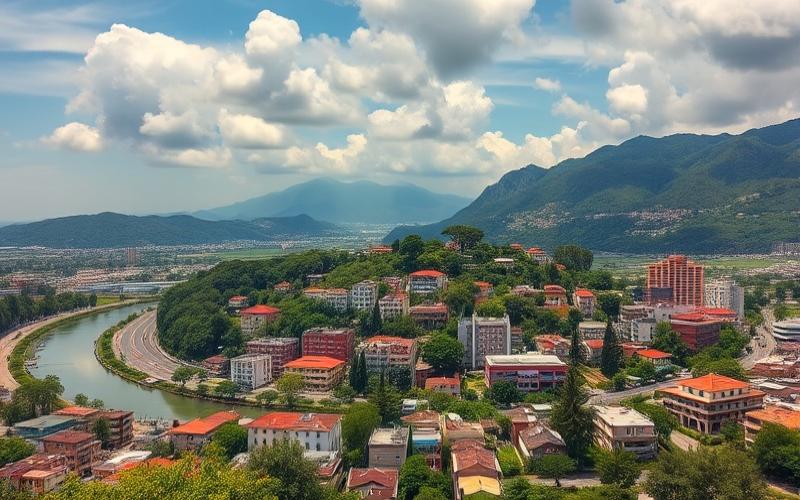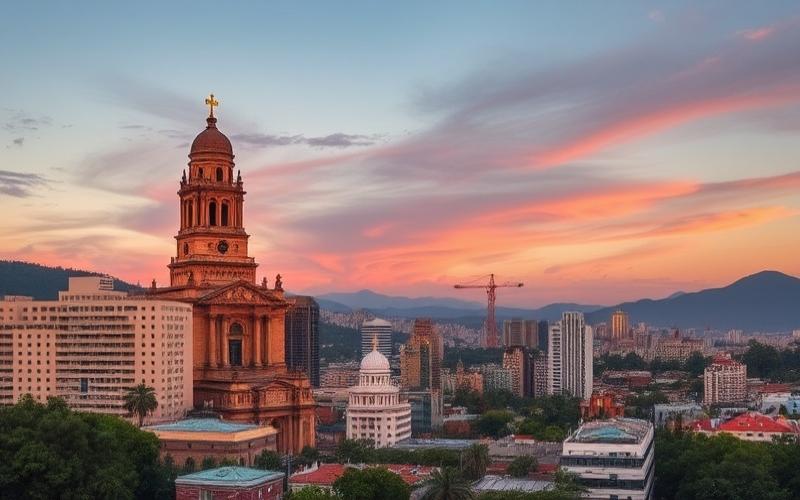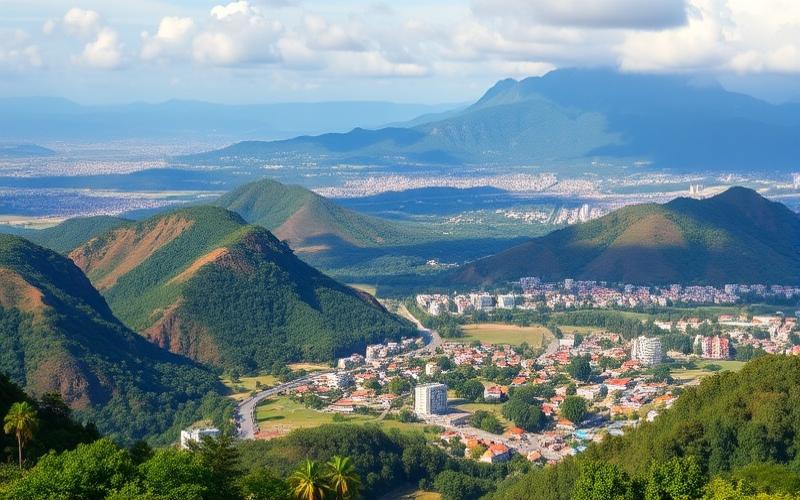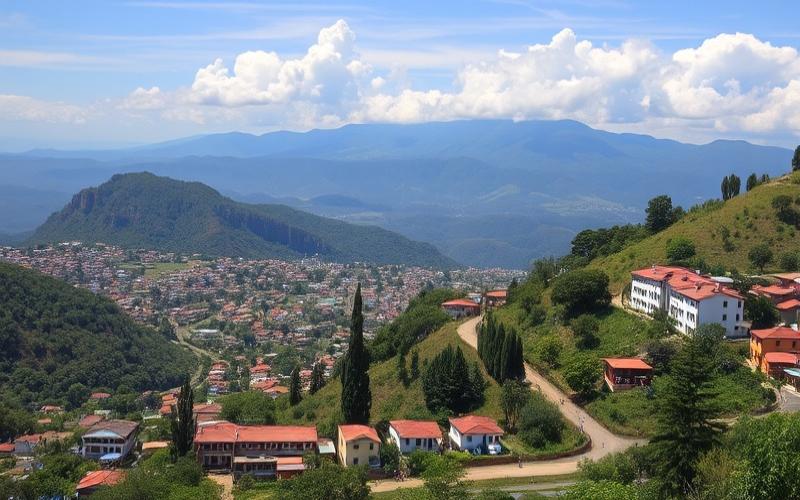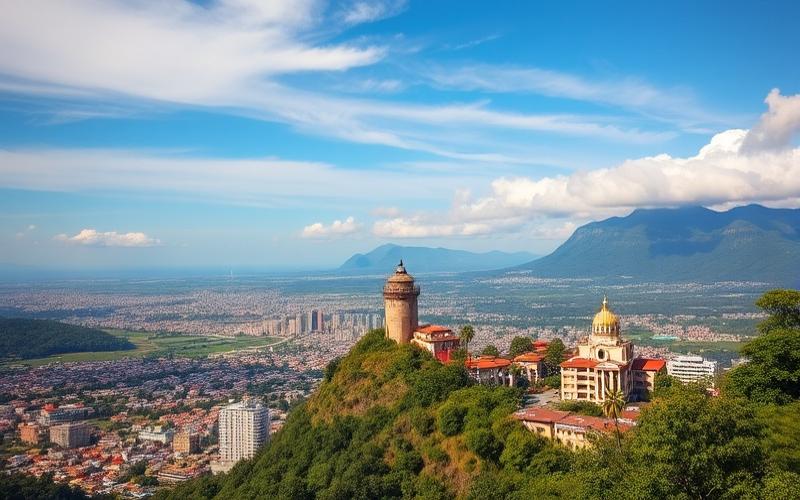
 Published on and written by Cyril Jarnias
Published on and written by Cyril Jarnias
El Salvador, this small Central American country often overlooked, is filled with unique cultural riches that can surprise unprepared expatriates.
Relocating there means immersing yourself in a world where family traditions are sacred, where the pace of life differs from Western standards, and where warm communication takes priority in daily interactions.
Understanding these essential cultural subtleties is crucial for integrating harmoniously and fully enjoying everything this country has to offer.
Embracing El Salvador’s cultural differences can transform your expatriate experience into a rewarding adventure, full of discoveries and memorable moments.
Understanding Social Norms
Definition of Social Norms in El Salvador
Social norms in El Salvador refer to the set of implicit rules that structure expected behaviors in society, particularly in daily interactions, social hierarchy, and respect for traditions.
Expected Behaviors in Daily Interactions
- Politeness and friendliness are essential, even during first encounters.
- Greetings often include a firm handshake between men, while women may exchange a light hug or a kiss on the cheek.
- Using courtesy titles (Señor, Señora, Licenciado, Ingeniero) is common to show respect.
- It’s customary to inquire about family or health before addressing professional matters.
Typical Greetings
| Situation | Form of Greeting |
|---|---|
| Formal meeting | Handshake, direct eye contact |
| Informal meeting | Kiss on the cheek (between women) |
| Arriving in a group | Greet each person individually |
Dress Codes
- Neat and clean clothing is expected, even in informal contexts.
- During professional or religious events, formal attire (suit and tie, dress) is the norm.
- Overly casual or revealing clothing is generally frowned upon.
Social Interaction Expectations
- Respect for hierarchy is fundamental, whether in family, school, or work settings.
- Traditional gender roles remain prevalent, particularly in private spheres and during celebrations.
- Family occupies a central place: important decisions are often made collectively.
Concrete Examples of Social Situations
| Situation | Application of Social Norms |
|---|---|
| Family dinner | The eldest or head of family is served first; sensitive topics are avoided at the table. |
| Religious celebration | Wearing modest clothing, active participation in rituals, strict respect for religious authority. |
| Professional meeting | Speaking according to hierarchy, formal greetings, exchanging business cards. |
Notable Differences with Other Countries
- In some Western countries, relationships are more egalitarian and direct, whereas in El Salvador hierarchical distance is marked.
- Quick use of informal address can surprise or be misinterpreted, as formal address remains common.
- The importance given to family and religious holidays may seem overwhelming to expatriates from more individualistic cultures.
- Gender roles are generally more traditional than in Europe or North America.
Key Points to Remember to Avoid Cultural Misunderstandings
- Always prioritize politeness and respect for titles.
- Dress appropriately according to context.
- Show patience and respect collective decision-making processes, particularly in family or professional contexts.
- Observe and imitate local behaviors during ceremonies or important meetings.
Adopting an attitude of listening and respect toward Salvadoran social norms greatly facilitates integration and the success of your expatriation.
Good to Know:
In El Salvador, greetings typically include a handshake or light hug and dress codes are often casual but neat; it’s important to follow norms of respect toward hierarchy and place great importance on family ties during dinners or celebrations.
Exploring Traditions and Customs
Exploring El Salvador’s Traditions and Customs
Traditional festivals hold a central place in Salvadoran life. Semana Santa (Holy Week) is one of the most important celebrations: towns and villages organize large religious processions, reenactments of Christ’s Passion, and special masses. Streets are sometimes decorated with colorful sawdust carpets (alfombras), creating an atmosphere of contemplation and community.
Day of the Dead (Día de los Difuntos), celebrated on November 2nd, is an occasion for families to visit the cemetery, decorate their loved ones’ graves with flowers, and organize meals or prayers on site. This moment of remembrance is accompanied by family gatherings, in an atmosphere filled with respect and sharing.
| Festival | Date | Main Customs |
|---|---|---|
| Semana Santa | March/April | Processions, sawdust carpets, masses |
| Día de los Difuntos | November 2 | Grave decoration, prayers, meals |
| Fiestas Patronales | Variable | Local festivals, dances, religious ceremonies |
| San Miguel | November | Parades, concerts, fairs |
| Las Bolas de Fuego | August 31 | Throwing fireballs in Nejapa |
Salvadoran Meals
Meals are a key moment in social and family life. Salvadorans gather around typical dishes, particularly pupusas (stuffed corn cakes), sopa de gallina india (free-range chicken soup), or tamales. The meal is an act of sharing, where extended family gathers, strengthening intergenerational bonds. It’s common to invite friends or neighbors, illustrating the conviviality and importance of community.
Iconic Dishes:
- Pupusas (stuffed corn cakes)
- Tamales (stuffed corn dough cooked in leaves)
- Sopa de gallina india (chicken soup)
- Atol de elote (sweet corn-based drink)
Religion
Religion is omnipresent, mainly Catholicism inherited from Spanish colonization, but also evangelical Protestant churches. Religious holidays mark the calendar and daily practices: masses, processions, veneration of saints. Celebrations are both moments of faith and opportunities for community gathering.
Social Structure and Family Roles
- Family is the fundamental unit, often extended (grandparents, uncles, cousins).
- Roles are generally traditional: respect for elders, the mother occupies a central place in household management, while the father is often considered head of family.
- Intergenerational solidarity is very strong, and neighborly assistance is common.
Dress Codes and Greetings
Dress Codes and Greetings:
- Salvadorans dress neatly during festivals, with women sometimes wearing the traje de mestiza (traditional dress adorned with embroidery).
- In daily life, attire is modest and clean, especially in urban areas.
- Greetings vary: firm handshake for men, friendly pat on the forearm or shoulder for women; close friends may kiss on the cheek.
- Respect for elders is shown through use of polite forms (“Don,” “Doña”) and reserved attitude.
Cultural Aspects Surprising for Newcomers
- Human warmth and hospitality: it’s common to be invited to share a meal even during a first encounter.
- Festivities may include uncommon rituals elsewhere, like throwing fireballs in Nejapa.
- Social life is very community-oriented: the notion of privacy is different, and interactions are often spontaneous and direct.
Practical Tips for Expatriates
- Adopt a respectful and open attitude, participate in local festivals to better understand the culture.
- Always greet people present when arriving and leaving, even in larger circles.
- Dress appropriately during social or religious events; avoid overly casual attire.
- Respect religious practices, even if not a believer, particularly during Holy Week or Day of the Dead.
- Accept invitations to share a meal with gratitude, and if possible, bring a small contribution (drink, dessert).
To Remember: Respect, openness, and willingness to share are the keys to integrating and fully appreciating the richness of Salvadoran traditions.
Good to Know:
Participating in Semana Santa and Día de los Muertos helps better understand Salvadoran culture; it’s advisable to dress modestly during ceremonies and adopt a respectful tone. During meals, prioritize conviviality and use the opportunity to build connections by gratefully accepting invitations to share traditional dishes with families.
Tips to Avoid Cultural Faux Pas
Understanding and respecting local traditions is essential for successful expatriation in El Salvador.
| Theme | Practical Tips and Behaviors to Adopt |
|---|---|
| Greetings and Politeness |
|
| Topics to Avoid |
|
| Language and Communication |
|
| Local Festivals and Customs |
|
| Work Culture |
|
| Dress Code |
|
Specific Behaviors to Avoid:
- Arriving without greeting or thanking.
- Showing impatience with time management or unexpected events.
- Displaying arrogance or wanting to impose your viewpoint.
- Wearing clothing considered too casual or provocative during ceremonies or in professional contexts.
Tips for Learning and Integrating Further:
- Take Spanish classes in local schools or associations.
- Participate in language tandems or cultural workshops.
- Join expatriate groups, international associations, or sports and volunteer activities.
- Get involved in neighborhood life: interact with neighbors, show interest in cuisine and artisanal traditions.
- Stay informed through local media and ask Salvadorans for advice to understand implicit codes.
Taking time to observe, ask questions with kindness, and participate in local activities are the keys to successful integration in El Salvador.
Good to Know:
Avoid discussing the civil war, prioritize warm and informal greetings, and respect professional hierarchies during interactions. Participate in local festivals with respect and research linguistic nuances to communicate better.
Disclaimer: The information provided on this website is for informational purposes only and does not constitute financial, legal, or professional advice. We encourage you to consult qualified experts before making any investment, real estate, or expatriation decisions. Although we strive to maintain up-to-date and accurate information, we do not guarantee the completeness, accuracy, or timeliness of the proposed content. As investment and expatriation involve risks, we disclaim any liability for potential losses or damages arising from the use of this site. Your use of this site confirms your acceptance of these terms and your understanding of the associated risks.





